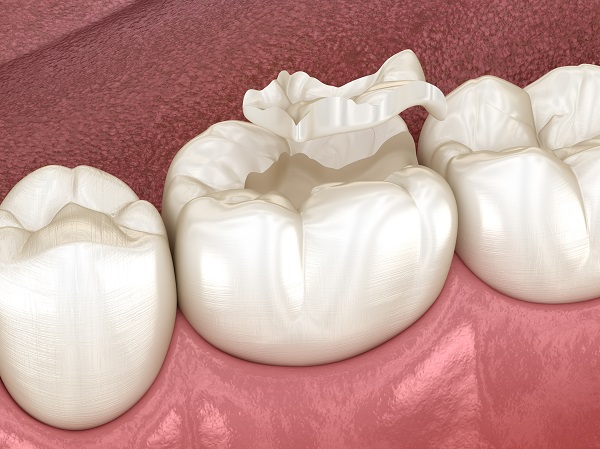Answers to Questions about Dental Sealants

For extra protection against tooth cavities, dental sealants are an ideal option to consider. Dental cavities are one of the most common dental issues that affect both adults and children. Sometimes, brushing and flossing are not enough to protect the teeth from decay. Regular checkups are also important; during one of these appointments, the dentist might recommend and provide dental sealants. This article answers some of the questions patients often have about the procedure.
What are dental sealants?
Dental sealants are thin coatings applied over the chewing surfaces of the molars and premolars to stop tooth cavities. It is essentially a covering for the tooth’s surface to keep out food particles that are sometimes hard to remove from the pits and fissures when brushing. The sealant is white, transparent or somewhat tinted. Therefore, it is indistinguishable on the teeth when the person speaks or smiles.
Is the process painful?
The dental sealant application is simple and causes no pain. The dentist will clean the tooth properly and apply a gel on the tooth’s surface for several seconds. The tooth is rinsed afterward and dried. Then, the sealant material is applied to the tooth enamel where it bonds directly and hardens. In some cases, the dentist may use a curing light to harden the sealant into a protective shield.
How long do dental sealants last?
Sealants are highly durable. They can survive up to 10 years with proper maintenance. Patients need to visit the dentist for regular dental checkups to prolong the lifespan of the sealants. If the sealants break, the dentist can reapply or replace the sealants.
Who is an ideal candidate for sealants?
Generally, dental sealants can serve preventative purposes for everyone. Kids who are developing teeth can get their teeth sealed to prevent early occurrences of tooth decay. Teenagers who are susceptible to cavities can also get sealants to cover their permanent teeth. Even adults can get a dental sealant, although they tend to ignore the importance of this preventative treatment. A decayed tooth affects more than just oral health–it impacts general well-being as well. Patients can discuss with their dentist to know if dental sealants would be beneficial for them.
Will dental sealants change the tooth?
The good part of sealants is that they blend in with the teeth. The layer is thin and does not change how the tooth feels. The dentist will check to make sure the bite remains the same. In the first few hours or days after getting the sealant, the tongue may feel the difference, but it will become familiar soon enough. There are no known side effects of using sealants, except allergic reaction, but even this is rare and not harmful.
Final note
The earlier you get dental sealants, the better. Undergoing the procedure now will prevent you from eventually having to get dental restorations to repair a decayed tooth. The sealants will work as a practical preventive measure to prevent dental issues. As they say, prevention is better than cure. If you have additional questions, book an appointment with the dentist.
Request an appointment here: https://www.mazzdental.com or call Frank Mazzaferro DDS at (315) 218-0485 for an appointment in our Rome office.
Check out what others are saying about our dental services on Yelp: Dental Sealants in Rome, NY.
Related Posts
Your dentist might recommend dental sealant if some of your teeth are vulnerable to decay. These restorations serve as a barrier that keeps food particles, bacteria, and acids out of the grooves of their biting surfaces.Oral bacteria feed on the sugars in food particles stuck on teeth after meals, and they excrete acids that cause…
Preventive dentistry goes beyond undergoing dental checkups and cleanings twice a year. Read on to learn how preventive dentistry can protect against various oral health issues. You ensure a lifetime of good oral health and ultimately your general health if you keep those regular checkups. Preventive dental care checkups help you stay proactive in many…
Preventative dentistry involves you keeping your teeth and gums healthy by taking actions that will protect against dental problems like tooth decay, gum disease, and enamel loss. Tooth decay and gum disease are two of the most common dental issues that people seek care for, yet both are preventable.Things like daily oral hygiene and teeth…
Preventive dentistry centers around a few core values: Practice good daily oral hygiene, never skip a dental cleaning and avoid sugar. Steering clear of sugary food and drinks is one of the pillars of dentistry.Read on to discover the seven things you need to know about the connection between sugar and tooth health.The mouth is…
